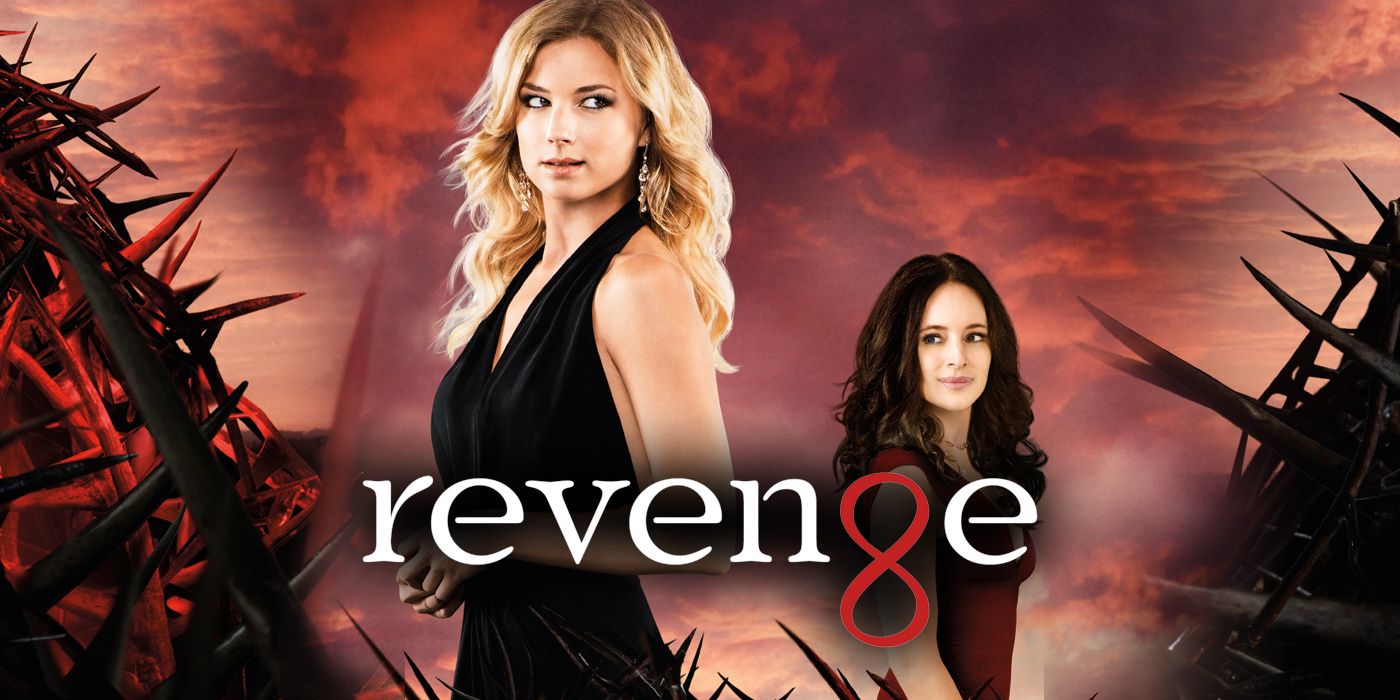Do Revenge TV Tropes: Unraveling the Intriguing World of Retribution in Television Dramas

Introduction: Seeking Justice or Unleashing Darkness?
Revenge TV tropes have been a staple in television dramas for decades, captivating audiences with their intense story lines and complex characters. From avenging a loved one’s death to seeking justice against a tormentor, revenge plots tap into our primal emotions and explore the thin line between right and wrong. In this comprehensive article, we’ll dive deep into the world of do revenge TV tropes, shedding light on the elements that make them so engaging and unforgettable.
The Classic Revenge Arc: A Hero’s Journey
In the heart of every revenge TV trope lies the classic revenge arc—a journey that takes the protagonist from pain and suffering to retribution and resolution. These arcs often mirror the hero’s journey, as described by Joseph Campbell, where the protagonist faces challenges, meets mentors, and ultimately transforms into a vengeful force for justice. Shows like “Revenge” and “Count of Monte Crisco” have mastered this narrative, becoming fan favorites across generations.
The Allure of Anti-Heroes: Rooting for the Dark Side
One recurring element in do revenge TV tropes is the portrayal of anti-heroes—characters who, while seeking revenge, often resort to morally ambiguous methods. These protagonists challenge traditional notions of good and evil, blurring the lines between the hero and the villain. We’ll explore the psychology behind why viewers find themselves rooting for these anti-heroes, even when their actions are morally questionable.
Femme Fatales: Empowerment or Stereotype?
Revenge TV tropes often feature powerful and alluring female characters, commonly known as femme fatales. These women possess a potent combination of beauty, intelligence, and cunning, making them formidable adversaries. We’ll delve into the representation of femme fatales in television dramas, discussing whether they empower women or perpetuate harmful stereotypes.
Plot Twists and Betrayals: Keeping Audiences Guessing
One of the most enticing aspects of revenge TV tropes is their ability to keep audiences guessing. Jaw-dropping plot twists and shocking betrayals are recurring themes that add layers of complexity to the narrative. We’ll analyze some of the most memorable plot twists in revenge dramas and how they leave viewers gasping for more.
From Riches to Rags: The Fall and Rise of the Protagonist
A common pattern in do revenge TV tropes is the protagonist’s dramatic downfall, often leading to their rise as a force of vengeance. This rags-to-riches-to-rags journey tugs at the heartstrings of viewers, evoking empathy and anticipation for the protagonist’s eventual triumph. We’ll explore how this roller coaster of emotions keeps viewers invested in the story.
Unraveling the Web of Conspiracy: Secrets and Schemes
Conspiracy and deception play significant roles in revenge TV tropes, as characters unravel webs of lies and deceit to reveal the truth. These intricate schemes add layers of intrigue and suspense, keeping viewers on the edge of their seats. We’ll examine some of the most captivating conspiracies in revenge dramas and their impact on the story line.
The Power of Revenge: Catharsis and Closure
For both the characters seeking revenge and the viewers, vengeance offers a sense of catharsis and closure. It’s a potent emotional release, providing a sense of justice and satisfaction. We’ll delve into the psychological aspects of catharsis and how it affects the emotional journey of both characters and the audience.
The Dark Side of Vengeance: Exploring the Consequences
While revenge may provide temporary satisfaction, it often comes with a price—the consequences of one’s actions. Revenge TV tropes often explore the repercussions of seeking retribution, delving into the emotional toll it takes on characters and those around them. We’ll discuss the moral dilemmas faced by avenging characters and the lessons viewers can take from these cautionary tales.
The Grey Area: Questioning Morality and Justice
Revenge TV tropes thrive in the grey area between right and wrong, where justice becomes subjective. This moral ambiguity challenges viewers to question their own beliefs about revenge and justice. We’ll explore how these complex themes are portrayed in popular TV dramas and how they resonate with the audience.
Iconic Revenge TV Tropes Through the Ages
Throughout the history of television, certain revenge TV tropes have stood the test of time, becoming iconic representations of this genre. From the classic “eye for an eye” to elaborate schemes of manipulation, we’ll explore these timeless tropes and their continued relevance in modern storytelling.

The Evolution of Revenge Tropes: Modern Twists and Innovations
As television evolves, so do revenge TV tropes. Modern dramas often put unique twists on traditional revenge narratives, subverting expectations and breaking new ground. We’ll examine the innovations in the genre and how they keep the audience engaged in an ever-changing media landscape.
Psychological Impact: Why We Love Revenge Dramas
What is it about revenge TV tropes that captivate us so deeply? We’ll delve into the psychology behind our fascination with these dramas, exploring how they tap into our primal instincts and emotions. From the thrill of vengeance to the satisfaction of seeing justice served, we’ll uncover the underlying reasons for our love of revenge stories.
The Role of Setting: From Urban Landscapes to Exotic Locales
Setting plays a crucial role in revenge TV tropes, contributing to the atmosphere and mood of the narrative. Whether it’s a sprawling cityscape or an isolated island, the setting can enhance the drama and intensify the emotional impact. We’ll discuss the significance of various settings and their influence on the story line.
Love and Revenge: The Complex Interplay of Emotions
Romance often intertwines with revenge in TV dramas, adding a layer of complexity to the narrative. Love can be a driving force behind the pursuit of vengeance or a hindrance to achieving it. We’ll explore the delicate balance between love and revenge, examining how it shapes character motivations and interactions.
The Influence of Culture: Revenge Across Different Societies
Revenge is a universal theme, present in storytelling across cultures. Different societies may perceive revenge differently, reflecting their values and beliefs. We’ll take a global perspective on revenge TV tropes, highlighting how cultural influences shape the portrayal of vengeance in television dramas.
Breaking the Mold: Subverting Revenge Tropes
Some TV dramas deliberately break away from traditional revenge tropes, subverting expectations and offering fresh narratives. These shows challenge the genre’s conventions, paving the way for new storytelling possibilities. We’ll explore how these innovative dramas carve a niche for themselves in the competitive television landscape.
The Evolution of the Anti-Heroine: Empowered and Multifaceted
While the femme fatale has long been a prominent figure in revenge TV tropes, the portrayal of strong female characters has evolved over the years. Modern dramas present empowered and multifaceted anti-heroines who defy stereotypes and forge their paths to vengeance. We’ll celebrate these trailblazing characters and the impact they have on representation in the media.
Do Revenge TV Tropes Influence Real-Life Behavior?
The power of media to influence society is undeniable, raising the question of whether revenge TV tropes can impact real-life behavior. We’ll explore the potential effects of consuming revenge dramas and whether they lead to changes in attitudes or actions.
The Art of Retribution: Writing and Crafting Revenge Narratives
Behind every revenge TV trope is a team of skilled writers and storytellers who craft compelling narratives. We’ll delve into the art of writing revenge dramas, examining the techniques and strategies used to create engaging and memorable plots.
Do Revenge TV Tropes: An Evergreen Genre
Despite evolving storytelling trends, revenge TV tropes remain a beloved and enduring genre. From classic masterpieces to modern innovations, viewers continue to be drawn to these captivating tales of retribution. We’ll explore the enduring appeal of revenge dramas and why they continue to captivate audiences around the world.
FAQs: Unraveling the Mysteries of Revenge TV Tropes
Q: What makes revenge TV tropes so captivating?
Revenge TV tropes tap into our primal emotions, offering a cathartic experience as we witness characters seek justice or retribution.
Q: Why do viewers often root for anti-heroes in revenge dramas?
Anti-heroes challenge traditional notions of good and evil, making them complex and intriguing characters to follow.
Q: How do revenge TV tropes reflect cultural differences?
Different societies may portray revenge differently, reflecting their unique values and beliefs surrounding justice and vengeance.
Q: Are revenge TV tropes solely about vengeance?
While revenge is a central theme, these dramas often explore complex emotions, relationships, and moral dilemmas.
Q: Do revenge TV tropes influence real-life behavior?
While media can influence attitudes, the impact of revenge TV tropes on real-life behavior remains a subject of debate and study.
Q: How have revenge TV tropes evolved over the years?
Modern revenge dramas often challenge conventions, Television Dramas presenting empowered and diverse characters in compelling narratives.
Conclusion: The Enduring Allure of Revenge TV Tropes
Revenge TV tropes continue to stand the test of time, captivating audiences with their intense emotions, intricate plots, and unforgettable characters. From classic tales of vengeance to modern twists that defy expectations, these dramas offer a glimpse into the complex interplay of justice, morality, and human emotions. As long as our fascination with retribution endures, revenge TV tropes will remain an integral part of television storytelling, leaving viewers spellbound and hungry for more.



